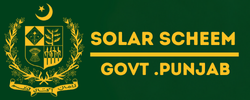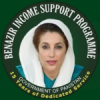The Ehsaas Nashonuma Program is a vital component of the broader Ehsaas Kafalat initiative, aimed at improving the well-being of pregnant women and mothers with young children in Pakistan. This program provides these women additional financial support of 3,000 Rupees, ensuring better health outcomes for both mothers and children. In this article, we will explore the various aspects of the Ehsaas Nashonuma Program, its benefits, eligibility criteria, and its impact on the lives of its beneficiaries.
Overview of the Ehsaas Nashonuma Program
The Ehsaas Nashonuma Program is designed to address the nutritional needs of pregnant and lactating women, as well as their children under two years of age. The program aims to reduce the prevalence of malnutrition and stunted growth among children in Pakistan. By providing an additional 3,000 Rupees, the program ensures that mothers have the financial means to access nutritious food, healthcare, and other essential services.

Key Objectives
The primary objectives of the Ehsaas Nashonuma Program include:
- Improving Maternal Health: By providing extra financial support, the program ensures that pregnant women have access to nutritious food, prenatal care, and necessary medical services.
- Enhancing Child Health: The program aims to reduce malnutrition and stunting among children by ensuring they receive proper nutrition and healthcare during their early years.
- Empowering Women: By giving financial autonomy to women, the program empowers them to make better health and nutrition choices for themselves and their children.
Ehsaas Nashonuma Program
The Ehsaas Nashonuma Program provides an additional 3,000 Rupees to eligible women. This financial support is over and above the regular benefits provided under the Ehsaas Kafaalat initiative. The following table provides a breakdown of the financial support offered:
| Beneficiary Category | Regular Benefit (Rupees) | Additional Benefit (Rupees) | Total Benefit (Rupees) |
|---|---|---|---|
| Pregnant Women | 2,000 | 3,000 | 5,000 |
| Mothers with Young Children | 2,000 | 3,000 | 5,000 |
Eligibility Criteria
To qualify for the Ehsaas Nashonuma Program, the following eligibility criteria must be met:
- Pregnant Women: Must be registered under the Ehsaas Kafaalat initiative and provide proof of pregnancy.
- Mothers with Young Children: Must have children under two years of age and be registered under the Ehsaas Kafaalat initiative.
- Income Verification: The household income must fall below the poverty threshold as defined by the Ehsaas Kafaalat initiative.
How to Apply for the Ehsaas Nashonuma Program
Applying for the Ehsaas Nashonuma Program is a straightforward process:
- Registration: Eligible women must first register under the Ehsaas Kafaalat initiative.
- Documentation: Provide necessary documentation, including proof of pregnancy or proof of children under two years of age.
- Verification: The application and documentation will be verified by the relevant authorities.
- Approval and Disbursement: Once approved, the additional financial support of 3,000 Rupees will be disbursed to the beneficiaries.
Impact of the Ehsaas Nashonuma Program
The Ehsaas Nashonuma Program has had a significant positive impact on the lives of pregnant women and mothers with young children. Some of the notable impacts include:
Improved Health Outcomes
By providing additional financial support, the program ensures that women can afford nutritious food and access healthcare services. This leads to improved health outcomes for both mothers and children, reducing the risk of malnutrition and stunted growth.
Empowerment of Women
The program empowers women by giving them financial autonomy. This enables them to make informed decisions about their health and the health of their children, leading to better overall well-being.
Reduction in Poverty
The additional financial support helps to alleviate the financial burden on low-income households, reducing the incidence of poverty and improving the quality of life for the beneficiaries.
Case Studies
Case Study 1: Improved Nutrition for Pregnant Women
Ayesha, a pregnant woman from a rural village in Pakistan, was struggling to afford nutritious food during her pregnancy. After enrolling in the Ehsaas Nashonuma Program, she received an additional 3,000 Rupees, which she used to buy fruits, vegetables, and supplements. As a result, Ayesha experienced a healthier pregnancy, and her baby was born at a healthy weight.
Case Study 2: Better Healthcare Access for Young Children
Fatima, a mother of a one-year-old child, was unable to afford regular medical check-ups for her child. With the additional financial support from the Ehsaas Nashonuma Program, she was able to take her child for regular health check-ups and vaccinations. This ensured that her child grew up healthy and free from preventable diseases.
Conclusion
The Ehsaas Nashonuma Program is a crucial initiative that addresses the nutritional and healthcare needs of pregnant women and mothers with young children in Pakistan. By providing an additional 3,000 Rupees, the program not only improves health outcomes but also empowers women and reduces poverty. The success stories and positive impacts of the program highlight its importance in fostering a healthier and more prosperous society.

